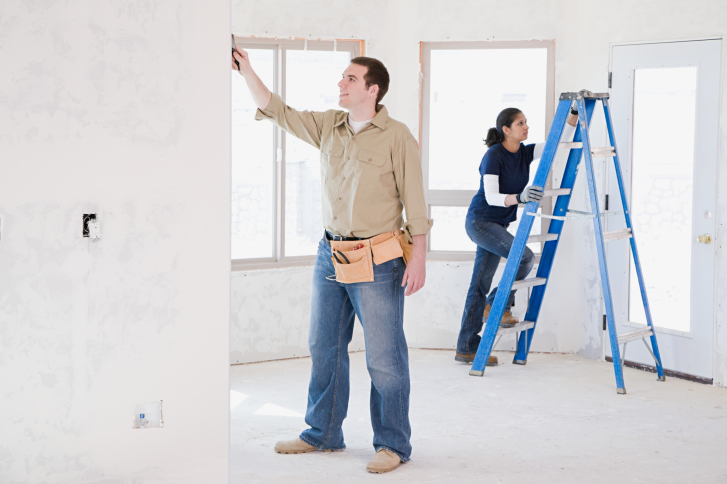 If you’re planning to get a mortgage, it’s critical that you know your rights under the law. The Truth in Lending Act (TILA) is a piece of federal legislation that governs how mortgage lenders can and cannot operate their businesses.
If you’re planning to get a mortgage, it’s critical that you know your rights under the law. The Truth in Lending Act (TILA) is a piece of federal legislation that governs how mortgage lenders can and cannot operate their businesses.
So how does the Truth in Lending Act protect you, and what are your rights under this legislation? Here’s what you need to know.
Your Lender Must Give You A Timely Loan Estimate
A Loan Estimate (previously known as a Good Faith Estimate) is a document your lender provides you that details information about what kind of a mortgage you’ve applied for. Your Loan Estimate includes terms such as your estimated monthly payment, your estimated interest rate, and whether or not your mortgage balance is able to rise even if you make payments.
Under the Truth in Lending Act, your lender is obligated to give you a good-faith Loan Estimate within three days of when you apply for your mortgage. If your lender fails to provide your Loan Estimate within three days or fails to fix reported errors within 60 days, you can sue for damages and report the lender to the federal government.
Your Lender Must Notify You Of Rate Changes
The Truth in Lending Act states that your mortgage lender is required to give you an annual percentage rate estimate within 1/8 of one percent of government guidelines. Your lender must use the government-approved mathematical formula to provide your rate estimate.
If your estimated rate may be subject to change, your lender is obligated to disclose the first possible change you’ll see to your interest rate, and the maximum degree to which it may change. Your lender is also required to disclose the maximum possible changes for subsequent rate adjustments.
There Are Strict Rules About How And When Lenders Can Charge Late Fees
If your lender typically administers fees for late payments, TILA will specify that your lender must notify you – in advance – the date on which a late fee will be imposed and how much the late fee will be. TILA states that no late fee can exceed 4 percent of the amount past due, and a payment is only considered late if it is 15 or more days past due (or 30 or more days past due if you prepaid your interest). Your lender also cannot charge you a late fee on top of a late fee.
TILA is a powerful consumer protection law that gives would-be homeowners a great deal of power. By knowing your rights under TILA, you’ll be able to confidently negotiate with lenders and avoid any unnecessary problems. Contact your real estate professional to learn more.

 If you’re worried about your bad credit, you’ll want to do everything in your power to improve your rating as quickly as possible – especially if you have a major purchase coming up. Improving your credit rating can give you access to better interest rates on mortgages or even help you to get that job you’re after.
If you’re worried about your bad credit, you’ll want to do everything in your power to improve your rating as quickly as possible – especially if you have a major purchase coming up. Improving your credit rating can give you access to better interest rates on mortgages or even help you to get that job you’re after. When you’re just moving into a neighborhood, it can be hard to know exactly what you’re getting into. Certainly, you can see the sights for yourself and read about your new community online, but there are still things that may not be readily available. If you’re looking for the cold, hard facts on the safety of your neighborhood, look no further than the following websites for the things you’ll want to know.
When you’re just moving into a neighborhood, it can be hard to know exactly what you’re getting into. Certainly, you can see the sights for yourself and read about your new community online, but there are still things that may not be readily available. If you’re looking for the cold, hard facts on the safety of your neighborhood, look no further than the following websites for the things you’ll want to know. Making a home purchase in a neighborhood that is sure to boom in the coming years can be a great real estate investment, but guessing on the next trendy locale may seem fraught with risk. If you’re trying to determine which area will be up and coming down the road, here are some telltale signs that buying may be a benefit to your bank account.
Making a home purchase in a neighborhood that is sure to boom in the coming years can be a great real estate investment, but guessing on the next trendy locale may seem fraught with risk. If you’re trying to determine which area will be up and coming down the road, here are some telltale signs that buying may be a benefit to your bank account. The idea of an idyllic beachfront home is appealing for many people, but there are a number of factors involved in this type of home purchase that should be considered before getting serious. Whether it’s a home to live in full time, or a vacation property with investment potential, there are a number of issues to take note of. So, if you’re on the fence regarding waterfront property, here are some things you should keep in mind if beach life might be right for you.
The idea of an idyllic beachfront home is appealing for many people, but there are a number of factors involved in this type of home purchase that should be considered before getting serious. Whether it’s a home to live in full time, or a vacation property with investment potential, there are a number of issues to take note of. So, if you’re on the fence regarding waterfront property, here are some things you should keep in mind if beach life might be right for you.